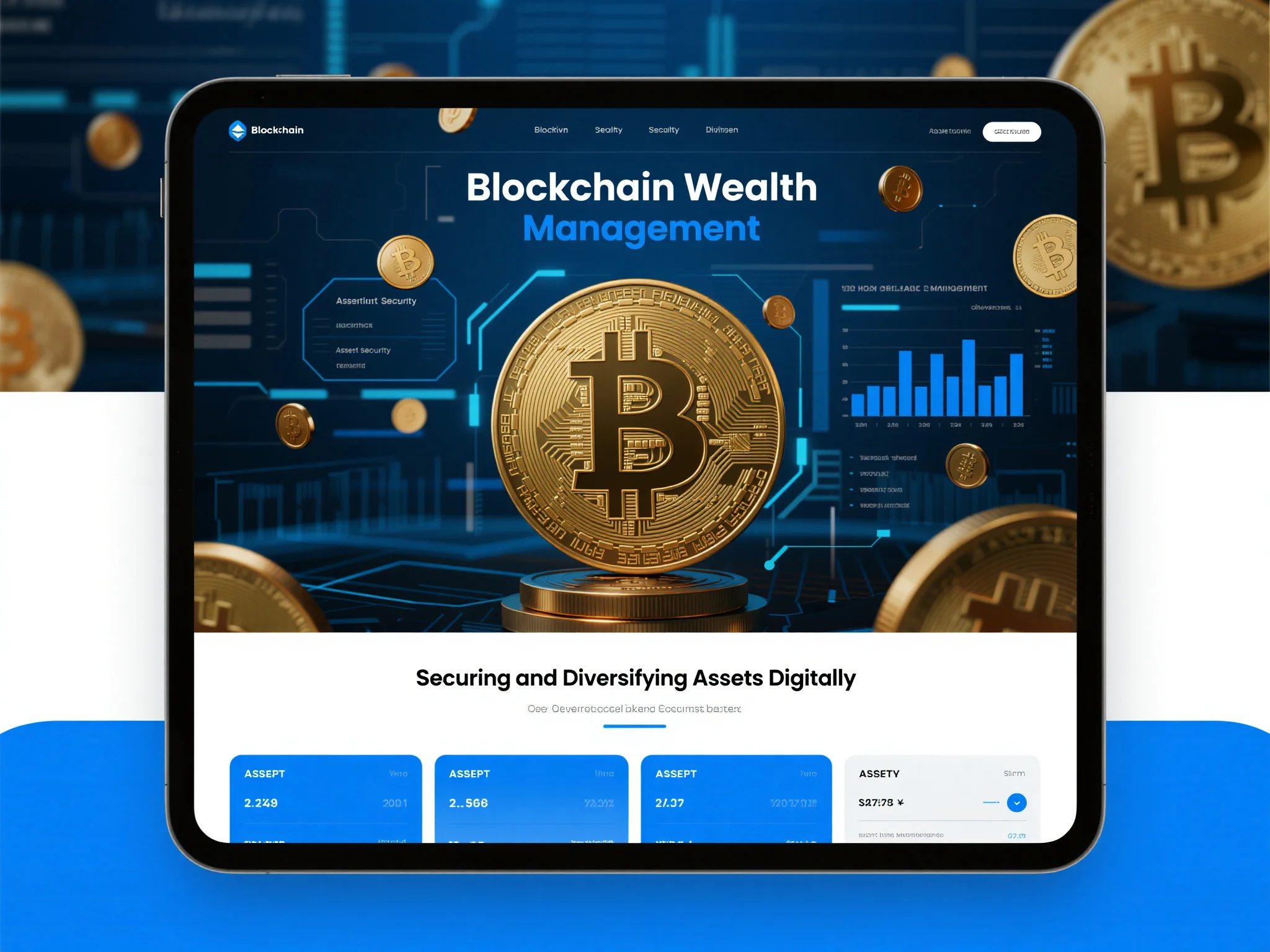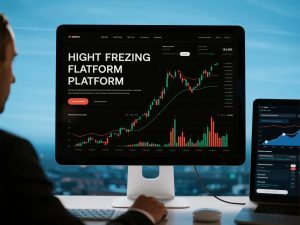Understanding Blockchain Wealth Management and Digital Asset Revolution The sophisticated landscape of blockchain wealth management represents a transformative paradigm shift in wealth preservation and asset management that leverages distributed ledger technology, smart contracts, and cryptographic security to provide ultra-high-net-worth individuals and institutional investors with unprecedented access to secure, transparent, and efficient wealth management solutions that transcend traditional financial boundaries while offering enhanced security, reduced counterparty risk, and global accessibility across various asset classes and investment strategies. Blockchain wealth management platforms combine cutting-edge distributed ledger technology with sophisticated financial expertise to create comprehensive asset management solutions that can provide immutable transaction records, automated compliance monitoring, and real-time settlement capabilities while offering transparent, cost-effective access to global investment opportunities and
innovative financial instruments that were previously unavailable through traditional wealth management channels. The effectiveness of blockchain wealth management depends on sophisticated protocol development, comprehensive security frameworks, and continuous innovation capabilities that enable these systems to adapt to evolving regulatory requirements, emerging technology standards, and changing investor preferences while maintaining rigorous security standards and compliance protocols that protect investor interests and support long-term wealth preservation objectives across various jurisdictions and regulatory environments. Professional implementation of blockchain wealth management requires coordination between blockchain developers, financial professionals, regulatory experts, and cybersecurity specialists who understand the complex interplay between distributed ledger technology, traditional finance, and regulatory compliance to create platforms that deliver optimal wealth management outcomes while maintaining the highest standards of security, transparency, and regulatory adherence. The regulatory environment for blockchain wealth management continues to evolve with new guidelines for digital assets, cryptocurrency custody, and blockchain-based financial services that require ongoing monitoring and adaptation to ensure continued compliance and effectiveness while supporting innovation and technological advancement in the wealth management industry across various global jurisdictions. The selection and evaluation of blockchain wealth management platforms requires careful analysis of technology architecture, security protocols, regulatory compliance, and operational capabilities to identify solutions that provide optimal value and performance while supporting individual investor objectives and risk tolerance across various market conditions and regulatory environments. Advanced blockchain wealth management platforms often incorporate multiple innovative features including multi-signature security, automated smart contract execution, and cross-chain interoperability that can provide comprehensive wealth management solutions while supporting personalized investment strategies that adapt to changing investor needs and market opportunities over extended time periods while maintaining the security and transparency advantages of distributed ledger technology.Tokenized Asset Investments and Digital Securities Innovation The comprehensive implementation of tokenized asset investments provides sophisticated investors with access to fractional ownership opportunities, enhanced liquidity, and global investment access through blockchain-based digital securities that represent ownership interests in traditional assets including real estate, private equity, art, commodities, and other alternative investments while offering the transparency, efficiency, and accessibility advantages of blockchain technology combined with the regulatory protections and investment characteristics of traditional securities markets. Tokenized asset platforms leverage smart contract technology to automate compliance monitoring, dividend distributions, and ownership transfers while providing investors with enhanced liquidity through secondary market trading capabilities that were previously unavailable for many alternative asset classes, creating new opportunities for portfolio diversification and investment access that support comprehensive wealth management strategies across various asset classes and geographic markets. The technology infrastructure supporting tokenized
asset investments includes sophisticated blockchain protocols, regulatory compliance systems, and investor verification processes that ensure tokenized securities meet appropriate regulatory standards while providing the operational efficiency and transparency benefits of distributed ledger technology through automated processes that reduce administrative costs and settlement times while enhancing investor protection and market integrity. Real estate tokenization through blockchain platforms provides investors with access to fractional ownership opportunities in commercial and residential properties across global markets while offering enhanced liquidity, reduced minimum investment requirements, and transparent ownership records that support portfolio diversification and international real estate exposure without the traditional barriers and complexities associated with direct real estate investment across multiple jurisdictions. Private equity and venture capital tokenization enables broader investor access to institutional-quality investment opportunities through fractional ownership structures that democratize access to private markets while maintaining appropriate investor protections and due diligence standards that support informed investment decision-making and risk management across various private investment strategies and market sectors. Art and collectibles tokenization provides sophisticated investors with access to fractional ownership opportunities in high-value art, rare collectibles, and luxury assets while offering enhanced liquidity, transparent provenance tracking, and reduced storage and insurance costs through blockchain-based ownership records and smart contract automation that streamline asset management and ownership transfer processes. Commodity and natural resource tokenization enables investors to gain exposure to physical commodities, mining rights, and natural resource projects through blockchain-based securities that provide transparent ownership records, automated revenue distributions, and enhanced liquidity while supporting portfolio diversification and inflation hedging strategies that protect wealth across various economic environments and market conditions. The integration of tokenized asset investments with traditional wealth management includes coordination with existing portfolio strategies, tax planning considerations, and regulatory compliance requirements to create comprehensive investment approaches that leverage the advantages of blockchain technology while maintaining appropriate risk management and fiduciary standards that protect investor interests and support long-term wealth accumulation objectives across various asset classes and investment strategies.Digital Asset Custody Services and Security Excellence
The strategic implementation of digital asset custody services provides ultra-high-net-worth investors and institutional clients with institutional-grade security, regulatory compliance, and operational excellence for cryptocurrency holdings, tokenized securities, and other digital assets through sophisticated custody solutions that combine advanced cryptographic security, multi-signature protocols, and comprehensive insurance coverage while offering the transparency, accessibility, and efficiency advantages of blockchain technology within regulatory frameworks that protect investor interests and support fiduciary responsibilities. Digital asset custody platforms incorporate multiple layers of security including hardware security modules, cold storage systems, multi-signature authentication, and biometric access controls that provide institutional-grade protection for digital assets while maintaining operational efficiency and accessibility that meets the requirements of sophisticated investors and regulatory standards for fiduciary asset management across various jurisdictions and compliance frameworks. The development and implementation of digital asset custody services requires comprehensive understanding of cryptographic security, regulatory requirements, and operational risk management to create custody solutions that provide optimal security and compliance while maintaining the accessibility and efficiency advantages that make digital assets attractive for wealth management and portfolio diversification strategies across various asset classes and investment objectives. Regulatory compliance for digital asset custody includes adherence to financial services regulations, anti-money laundering requirements, and fiduciary standards that ensure custody services meet appropriate regulatory expectations while supporting innovation and efficiency improvements that benefit clients and wealth management firms across changing regulatory environments and technological developments that impact digital asset management and custody operations. Insurance and risk management for digital asset custody includes comprehensive coverage for theft, fraud, and operational risks while providing additional protection through segregated storage, regular security audits, and continuous monitoring systems that protect client assets and support confidence in digital asset custody services across various market conditions and security threat environments that could impact asset protection and client satisfaction. Multi-signature and governance protocols within digital asset custody services provide enhanced security through distributed key management, approval workflows, and access controls that prevent unauthorized transactions while maintaining operational efficiency and client accessibility that supports effective wealth management and investment strategy implementation across various digital asset types and custody requirements. Integration capabilities for digital asset custody services include coordination with traditional wealth management platforms, accounting systems, and reporting tools that enable comprehensive portfolio management and performance monitoring while maintaining the security and compliance standards necessary for institutional-quality digital asset custody and wealth management services. The evolution of digital asset custody continues to advance with developments in quantum-resistant cryptography, decentralized custody solutions, and regulatory frameworks that create new opportunities for enhanced security and operational efficiency while requiring ongoing investment in technology infrastructure and compliance capabilities that support long-term competitive positioning and client satisfaction in the evolving digital asset custody landscape across changing technological and regulatory environments.

AI-Driven Investment Platforms USA and Technology Integration
The sophisticated integration of AI-driven investment platforms USA with blockchain wealth management creates comprehensive solutions that leverage artificial intelligence, machine learning, and distributed ledger technology to provide ultra-high-net-worth investors with advanced portfolio optimization, predictive analytics, and automated investment management capabilities while maintaining the security, transparency, and efficiency advantages of blockchain technology combined with the analytical power and decision-making capabilities of artificial intelligence systems that enhance investment outcomes and client satisfaction. AI-driven blockchain platforms combine machine learning algorithms with smart contract automation to create intelligent investment management systems that can analyze vast amounts of market data, execute complex trading strategies, and optimize portfolio allocations while providing transparent, immutable records of all investment decisions and transactions through blockchain technology that enhances accountability and regulatory compliance across various investment strategies and market conditions. The technology infrastructure supporting AI-driven blockchain investment platforms includes advanced data processing capabilities, machine learning models, and distributed computing systems that enable sophisticated investment analysis and portfolio optimization while maintaining the security and transparency benefits of blockchain technology through integrated systems that provide comprehensive investment management and wealth preservation solutions for sophisticated investors across various asset classes and investment objectives. Predictive analytics integration within AI-driven blockchain platforms provides sophisticated market analysis, risk assessment, and opportunity identification capabilities through machine learning algorithms that can process vast amounts of financial data, economic indicators, and alternative data sources while maintaining transparent and auditable analytical processes through blockchain-based record keeping that supports informed investment decision-making and regulatory compliance across various market conditions and investment strategies. Automated portfolio rebalancing through AI-driven blockchain systems includes sophisticated optimization algorithms that can maintain target asset allocations while minimizing transaction costs and tax implications through intelligent trade execution and smart contract automation that enhances portfolio efficiency and after-tax returns while providing transparent records of all rebalancing activities and investment decisions through immutable blockchain ledgers. Risk management integration within AI-driven blockchain platforms includes real-time risk monitoring, exposure analysis, and automated risk controls that can prevent excessive risk-taking while maintaining investment flexibility and opportunity capture through intelligent systems that combine artificial intelligence capabilities with blockchain security and transparency to support wealth preservation and accumulation objectives across changing market conditions and economic environments. Alternative investment analysis through AI-driven blockchain platforms includes sophisticated due diligence, performance analysis, and opportunity identification for private equity, hedge funds, real estate, and other alternative asset classes while providing transparent and auditable investment processes through blockchain-based record keeping that supports informed decision-making and regulatory compliance across various alternative investment strategies and market sectors. The coordination of AI-driven blockchain investment platforms with traditional wealth management includes integration with existing advisory relationships, family office services, and estate planning strategies to create comprehensive wealth management solutions that leverage technology advantages while maintaining personalized service and expertise that ultra-high-net-worth investors require for complex financial planning and investment management needs across various aspects of their wealth management and financial planning objectives.
Decentralized Finance USA and Financial Innovation
The strategic utilization of decentralized finance USA within blockchain wealth management provides sophisticated investors with access to innovative financial services, enhanced yield opportunities, and global liquidity through decentralized protocols that eliminate traditional intermediaries while offering programmable financial instruments, automated market making, and yield farming opportunities that can enhance portfolio returns and provide diversification benefits within regulatory frameworks that protect investor interests and support fiduciary responsibilities across various DeFi protocols and investment strategies. Decentralized finance platforms leverage smart contract technology to create automated financial services including lending, borrowing, trading, and yield generation that operate without traditional financial intermediaries while providing transparency, efficiency, and global accessibility that can enhance wealth management strategies and portfolio optimization for sophisticated investors who understand the risks and opportunities associated with decentralized financial protocols and emerging blockchain-based financial services. The implementation of DeFi strategies within wealth management requires comprehensive understanding of protocol risks, regulatory considerations, and operational complexities to ensure that decentralized finance investments align with overall portfolio objectives and risk tolerance while maintaining appropriate due diligence and risk management standards that protect investor interests and support long-term wealth preservation and accumulation goals across various DeFi protocols and market conditions. Yield farming and liquidity mining opportunities within DeFi protocols provide sophisticated investors with access to enhanced returns through providing liquidity to decentralized exchanges, lending protocols, and other DeFi applications while earning token rewards and transaction fees that can significantly enhance portfolio yields compared to traditional fixed-income investments, though these opportunities require careful analysis of protocol risks, impermanent loss potential, and regulatory considerations that impact overall investment attractiveness and risk-adjusted returns. Decentralized lending and borrowing protocols enable sophisticated investors to optimize capital efficiency through collateralized lending that provides access to liquidity without selling appreciated assets while earning yields on deposited collateral through automated protocols that eliminate traditional banking intermediaries and provide transparent, programmable lending terms that can enhance overall portfolio efficiency and cash flow management strategies. Automated market makers and decentralized exchanges within DeFi ecosystems provide enhanced trading capabilities, reduced counterparty risk, and improved price discovery for digital assets while offering liquidity provision opportunities that can generate additional returns through trading fees and token incentives that support portfolio diversification and yield enhancement strategies within decentralized financial markets that operate continuously across global time zones. Cross-chain interoperability and bridge protocols enable sophisticated investors to access DeFi opportunities across multiple blockchain networks while maintaining portfolio diversification and risk management through protocols that facilitate asset transfers and yield opportunities across different blockchain ecosystems that expand investment opportunities and enhance portfolio optimization capabilities within the evolving DeFi landscape. The integration of DeFi strategies with traditional wealth management requires careful consideration of regulatory compliance, tax implications, and operational risks to ensure that decentralized finance investments support overall wealth management objectives while maintaining appropriate risk management and fiduciary standards that protect investor interests and support long-term financial planning goals across various aspects of comprehensive wealth management and investment strategy implementation.
Regulatory Compliance and Risk Management Framework
The comprehensive development of regulatory compliance and risk management frameworks for blockchain wealth management requires sophisticated understanding of evolving regulatory landscapes, emerging compliance requirements, and operational risk factors that impact the implementation and ongoing management of blockchain-based wealth management solutions while ensuring adherence to fiduciary standards, investor protection requirements, and anti-money laundering regulations that protect investor interests and support the long-term viability of blockchain wealth management platforms across various jurisdictions and regulatory environments. Regulatory compliance for blockchain wealth management includes comprehensive adherence to securities regulations, investment advisor requirements, and digital asset guidelines that ensure blockchain-based wealth management services meet appropriate regulatory standards while supporting innovation and efficiency improvements that benefit clients and wealth management firms across changing regulatory environments and technological developments that impact the regulatory treatment of blockchain technology and digital assets. Anti-money laundering and know-your-customer compliance for blockchain wealth management includes sophisticated identity verification, transaction monitoring, and suspicious activity reporting that meet regulatory requirements while leveraging blockchain technology to enhance compliance efficiency and transparency through immutable transaction records and automated compliance monitoring that support regulatory adherence and operational efficiency across various compliance frameworks and jurisdictional requirements. Cybersecurity and operational risk management for blockchain wealth management includes comprehensive security protocols, incident response procedures, and business continuity planning that protect client assets and sensitive information while maintaining operational resilience and service availability through robust security frameworks that address the unique risks associated with blockchain technology and digital asset management across various threat environments and operational scenarios. Data privacy and protection considerations for blockchain wealth management include compliance with data protection regulations, privacy preservation techniques, and secure data handling procedures that protect client information while enabling the transparency and efficiency benefits of blockchain technology through privacy-preserving protocols and secure data management practices that support regulatory compliance and client confidentiality across various privacy frameworks and jurisdictional requirements. Insurance and liability coverage for blockchain wealth management includes comprehensive protection against operational risks, technology failures, and security breaches while providing additional assurance for clients and stakeholders through appropriate insurance coverage and risk transfer mechanisms that support confidence in blockchain wealth management services and protect against potential losses from various operational and technology risks. Audit and oversight procedures for blockchain wealth management include regular security assessments, compliance reviews, and performance evaluations that ensure ongoing adherence to regulatory requirements and operational standards while supporting continuous improvement and risk management optimization through systematic monitoring and evaluation processes that maintain the integrity and effectiveness of blockchain wealth management operations. The evolution of regulatory frameworks for blockchain wealth management continues to develop with new guidelines for digital assets, decentralized finance, and blockchain-based financial services that require ongoing monitoring and adaptation to ensure continued compliance and operational effectiveness while supporting innovation and competitive positioning in the evolving blockchain wealth management landscape across changing regulatory and technological environments that impact the future development and implementation of blockchain-based wealth management solutions.
Implementation, Security, and Future Considerations
The successful implementation and ongoing management of blockchain wealth management platforms require sophisticated technology infrastructure, comprehensive security protocols, and continuous innovation processes that ensure platforms maintain their effectiveness while adapting to changing technology capabilities, regulatory requirements, and client expectations that could impact long-term platform success and client satisfaction in the evolving digital asset and blockchain wealth management industry. Implementation planning for blockchain wealth management involves comprehensive project management, technology integration, change management, and client onboarding processes that ensure successful deployment of blockchain-based wealth management capabilities while maintaining operational continuity and service standards that meet the expectations of ultra-high-net-worth investors and regulatory requirements for digital asset management and custody services. Technology infrastructure development for blockchain wealth management includes sophisticated blockchain protocol selection, smart contract development, and integration capabilities that provide optimal performance, security, and scalability while supporting the complex requirements of institutional-quality wealth management services across various blockchain networks and digital asset types that comprise modern blockchain wealth management portfolios and investment strategies. Security architecture and cryptographic protocols for blockchain wealth management include advanced encryption, multi-signature security, hardware security modules, and quantum-resistant cryptography that provide institutional-grade protection for digital assets while maintaining operational efficiency and accessibility that meets the requirements of sophisticated investors and regulatory standards for fiduciary asset management across various security threat environments and technological developments. Performance monitoring and optimization for blockchain wealth management platforms include regular assessment of transaction throughput, security effectiveness, client satisfaction, and operational efficiency that ensures platforms continue to meet investment objectives and client expectations while identifying opportunities for enhancement and improvement of technology capabilities and service delivery across changing market conditions and client needs. Professional oversight and governance for blockchain wealth management require ongoing collaboration between blockchain developers, investment professionals, compliance experts, and cybersecurity specialists who can ensure that blockchain-based wealth management maintains appropriate risk management, regulatory compliance, and fiduciary standards while supporting innovation and efficiency improvements that benefit clients and wealth management firms across various aspects of service delivery and client relationship management. Technology evolution and platform development for blockchain wealth management include ongoing investment in research and development, protocol improvements, and feature enhancement that ensures platforms remain competitive and effective while adapting to changing technology capabilities and client expectations that drive innovation in the blockchain wealth management industry. Future considerations for blockchain wealth management include potential developments in quantum computing, central bank digital currencies, and regulatory frameworks that may transform digital asset management capabilities while requiring proactive planning and investment in technology infrastructure that supports long-term platform effectiveness and competitive positioning in the evolving blockchain wealth management landscape across changing technological and regulatory environments that could impact platform success and client satisfaction in serving the sophisticated needs of ultra-high-net-worth investors and their comprehensive digital asset management requirements.




